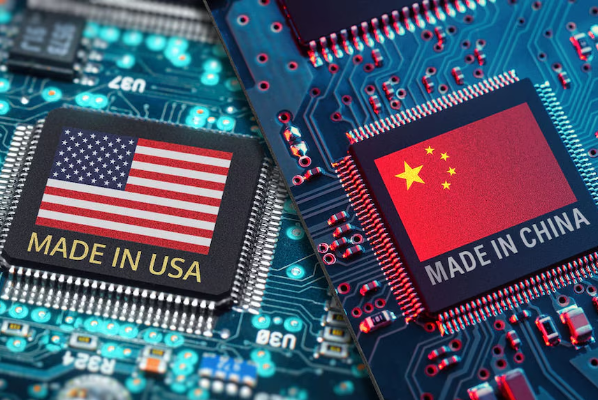
Access to the key commodities have long been reasons for competition and conflict. Spices, oil and now… semiconductor microchips. ⬇️
You may have heard of Nvidia, the Chips Act and that Taiwan is heavily involved in chip manufacturing. If not, the Australian Broadcasting Corporation (ABC) has a quick primer to get you oriented as to why semiconductors are strategic:
“History is littered with examples of nations battling for control of everything from spices to oil, gold and strategic superiority over technology. The latest battleground centres around a wafer-thin piece of silicon, the most sophisticated of which are between 300 and 500 millimetres in diameter…
When it comes to wealth, the incredible rise of Nvidia tells you everything you need to know about where the future is taking us. A company that was barely known just two years ago, it now jockeys with Apple for the mantle of the most valuable corporation on the planet. And all because of silicon chips.”
While Nvidia has been in the news courtesy of its market leading GPUs used for AI, like almost every major technology giant they rely on Taiwan Semiconductor Manufacturing Company (TSMC) to manufacture the high end chips required to power generative AI and advanced computing.
TSMC has a near monopoly in the manufacture of the smallest, most powerful and most valuable microchips in the world. The factory infrastructure required to manufacture the chips costs tens of billions to establish – the skilled workforce, machine tools and manufacturing inputs are all incredibly rare and in high demand. Taiwan based factories make the most vital inputs for the world’s high end computers and data centres.
To get the full history and context for Taiwan’s centrality in the global economy, we highly recommend adding Chris Miller’s book ‘Chip War’ to your reading stack. Chris recently gave a key note to the World Knowledge Forum titled Chip War 2.0. He builds on some of the content from his book and provides an update on the current context of the Chip War – one of his killer insights – China has spent more money importing microchips in the last decade than it has on importing oil!
Once upon a time microchips were an obsession for Gamers and Geeks – now they are just as important to Generals. There is no doubt that a key feature of Cold War II will be the competition to control the key commodities of technology.
📷 via ABC
